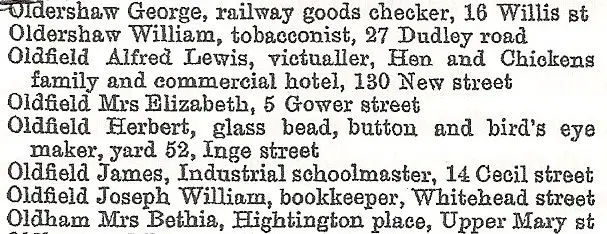barrie
master brummie
My Gt, Gt, Grandfather, James Oldfield was born in 1820 in Wells in Somerset, and in 1845 he married a girl named Hannah Wescott who lived next door.
By 1853 the family (there were by now 4 children) were living in Canal Street in Birmingham, and in the 1861 accounts for the Birmingham Industrial School, he is shown as the master of boot and shoe making.
What I would like to discover, is what mode of transport would they have used to get from Wells to Birmingham in those days, would it have been the railway or the stage coach?
Ta very much.
Barrie.
By 1853 the family (there were by now 4 children) were living in Canal Street in Birmingham, and in the 1861 accounts for the Birmingham Industrial School, he is shown as the master of boot and shoe making.
What I would like to discover, is what mode of transport would they have used to get from Wells to Birmingham in those days, would it have been the railway or the stage coach?
Ta very much.
Barrie.


